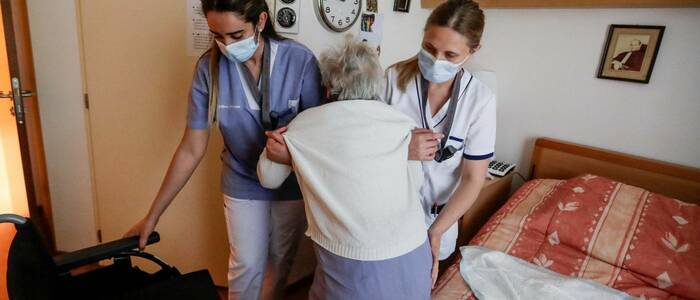The Disparaties White Paper: have you spoken to us?

Trying to influence government policy is not very glamorous. And sometimes, it can feel like an awful lot of work for little reward—at the end of the day, there’s nothing you can point to and say, “Look, we did that!”.
In our years of working in partnership with the health and care system on behalf of faith and belief groups—and it’s been over a decade now—there have been a few moments where the fruit of our actions can be clearly seen, but these moments are quite rare. Much of our day-to-day endeavours, as part of the Health and Wellbeing Alliance, are behind-the-scenes work: helping to gather views and experiences and communicate them to people involved in shaping policy. It may not always seem outwardly exciting, but it is important.
One policy document currently being drafted is the Disparities White Paper. Due to be published in the spring, there is now an opportunity to try to ensure the content of this paper reflects the needs we see in our own communities.
What is the Disparities White Paper?
White papers set the trajectory for future legislation. In announcing this work, the government is stating that addressing health inequalities, or disparities, will be a key aim for the foreseeable future. This follows on from what was learned during the pandemic, in particular, about the way in which COVID-19 magnified many of the inequalities pre-existing in our society. The government has said:
As part of breaking the link between people’s background and their prospect for a healthy life, the health disparities white paper will look at the factors affecting people’s health across the country, including risk factors, service access and experience and the biggest preventable killers such as cancer and heart disease, as well as the wider causes of ill health.
There is a nod, here, to wider determinants of health—factors such as poverty, education and environment, that all influence our health—as well as to the barriers to accessing healthcare that so many communities experience.
This is all very close to home for us at FaithAction, as well as to many of our members. Through our Creative English programme, for example, we see first-hand the challenges faced by recent migrants trying to access healthcare with very little spoken English. And we have heard throughout the pandemic of the difficulties that the increasing digitisation of healthcare is posing for those without access to technology.
The links between factors such as poverty and faith are also well known, with just under half (46%) of the Muslim population in England, for example, living in the 10% most deprived, and 1.7% in the least deprived, Local Authority Districts. Sikhs are also shown to be at greater risk of poverty than people from other faith traditions.
That the government is making a priority of addressing inequality may be encouraging, but we currently don’t know to what issues the government will be focusing its attention. This is where our opportunity lies.
What are we doing?
Over a week ago, we put a call-out to members of our Health and Wellbeing Collective and received several responses about things that mattered to people of faith and the organisations working on their behalf. These were then communicated to policy leads as part of an event organised by the Health and Wellbeing Alliance, alongside over twenty other voluntary-sector organisations.
At this stage, we don’t know where this will lead. But we can hope that these experiences will in some way shape the content of the white paper when it is published. We’ll endeavour to keep you updated on the progress of this work. There may not be a single champagne-and-fireworks moment, but perhaps, little by little, we can shift the dial on what matters to government.
There’s still time to let us know your thoughts on disparities, and what should be on government’s priority list when it comes to tackling them. Get in touch with us using the form below to share your thoughts.
And, if you’re interested in health inequalities, you might also want to join our Health and Wellbeing Collective, and be kept up to date with other opportunities to be involved in our influencing work.
Let us know your thoughts

About Jeremy Simmons
Policy and Programme Manager
Jeremy works to raise the profile and voice of the faith-based sector in policy making and gather evidence of local faith-based solutions. He leads FaithAction’s programme of work with the Department of Health and Social Care, the UK Health Security Agency (UKHSA) and NHS England, and is part of the team supporting FaithAction’s secretariat role for the All Party Parliamentary Group (APPG) for Faith and Society, and Faith Covenant. He is passionate about helping the faith-based sector work in partnership with other agencies.


